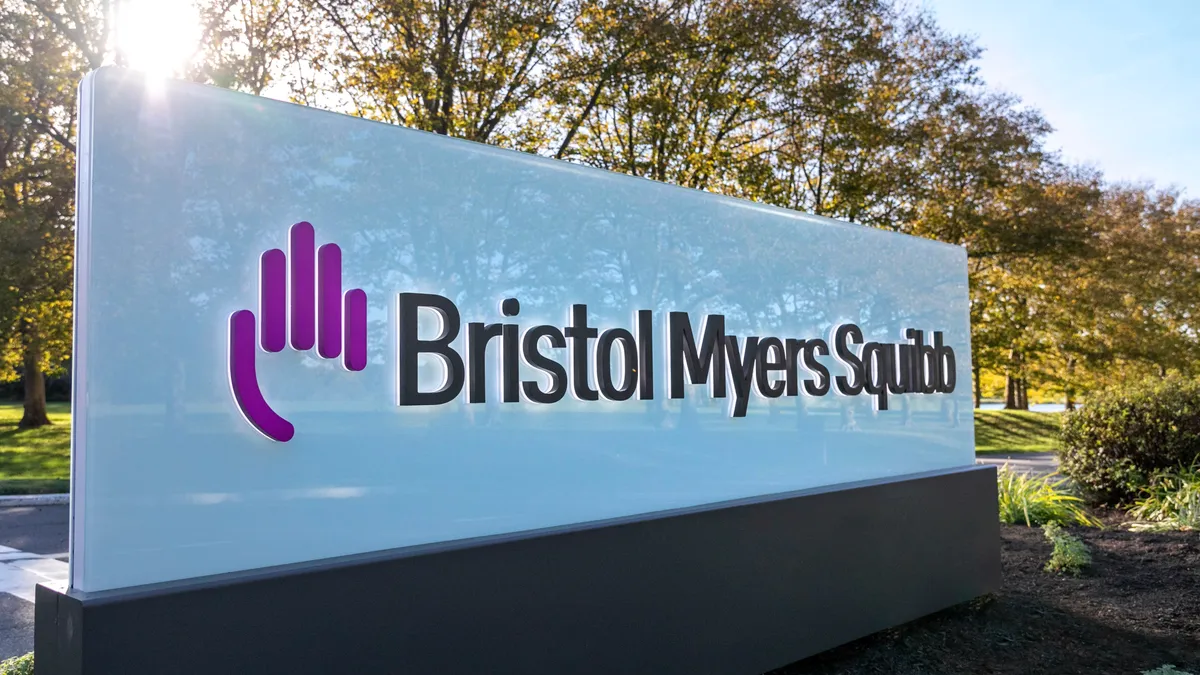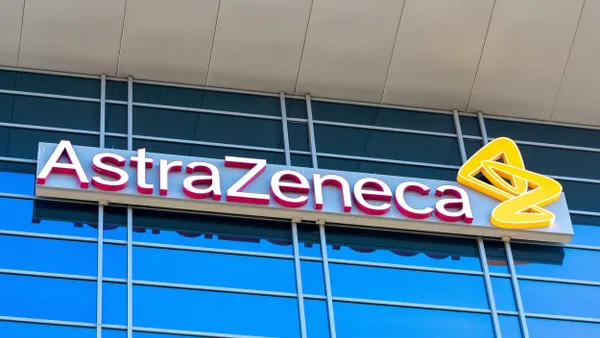Dive Brief:
- Bristol Myers Squibb is expanding its plan to cut costs, announcing alongside quarterly earnings on Thursday that it will slash an additional $2 billion in annual expenses by the end of 2027.
- The announcement builds on cutbacks Bristol Myers announced last April and that affected about 2,200 employees. Bristol Myers didn’t say how many workers will be impacted by the new initiative, but Chief Financial Officer David Elkins told analysts on a conference call that cuts will drive “operational efficiencies across multiple areas of the business.”
- Bristol Myers is already facing limited generic competition for one of its highest-grossing products, the multiple myeloma drug Revlimid. But it’s also bracing for the loss of billions in yearly revenue when patents expire for its cancer immunotherapy Opdivo and blood thinner Eliquis. The planned cuts announced Thursday will help Bristol Myers become a “leaner, more focused company” along the way, CEO Chris Boerner said.
Dive Insight:
Bristol Myers delivered both good and bad news on Thursday.
On one hand, the company’s fourth quarter results and earnings per share topped analysts’ estimates, as several products — from Eliquis to heart drug Camzyos and anti-inflammatory treatment Sotyktu — topped consensus estimates from Wall Street analysts.
On the other, though, its forecast of $45.5 billion in 2025 revenue missed analyst projections by almost $1 billion and would represent a roughly 6% decline from its 2024 total. That projection reflects the impact Bristol Myers expects generic competition to have across “multiple products” this year, Boerner said. And that impact will grow once Eliquis and Opdivo — which generated nearly $26 billion in worldwide revenue combined last year — lose market exclusivity, too.
The lower-than-expected guidance numbers “tarnished” what was otherwise a “strong quarter,” wrote Edward Jones analyst John Boylan.
Bristol Myers has been turning to deals to prepare for those losses, among them buyouts of RayzeBio, Mirati Therapeutics and Karuna Therapeutics. Those acquisitions have yielded prospects for cancer and neurological conditions, and Karuna’s medicine, Cobenfy, has already gotten off to a strong start. Revenue from its “growth portfolio,” which includes newer medicines like Camzyos, the cell therapy Breyanzi and immunotherapy Opdualag, grew by about 21% in 2024 as well, according to its earnings presentation.
Yet the company is also cutting expenses. The company lowered annual costs by about $1.1 billion of its $1.5 billion target last year. But it did so while mainly reinvesting those savings into the company, CFO Elkins said. The new cuts, by contrast, will “drop to the bottom line,” he added.
Half of the $2 billion in cuts are expected to occur this year, with the remainder coming by the end of 2027, he said.














